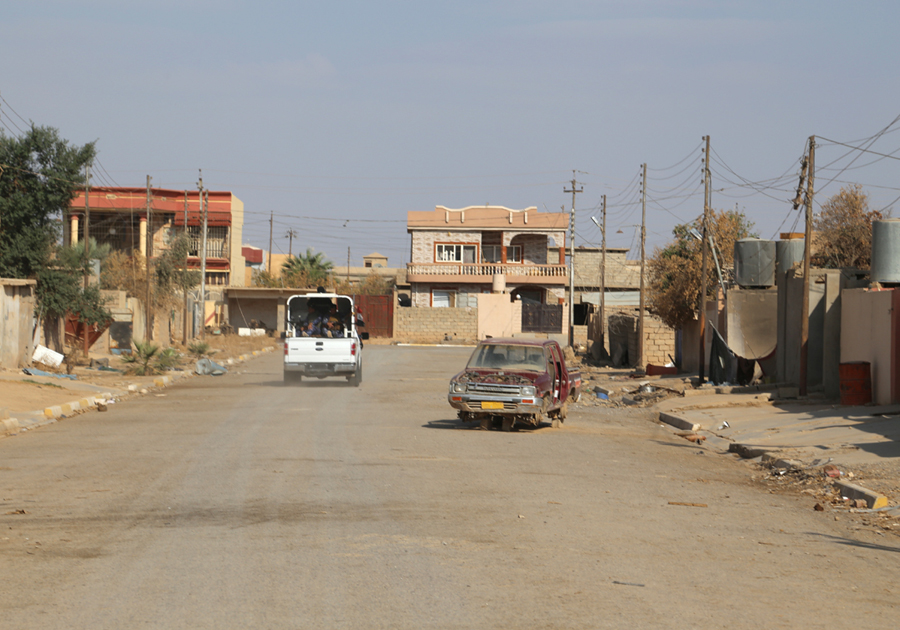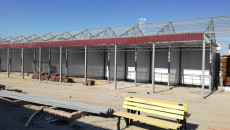After being displaced and returning to Hawija district of Kirkuk province, Wala, Hanan and Jamila faced difficulties yet with the help of an international organization, each of them received training in a different field and moved towards a new life.
The International Organization for Migration (IOM) has published the stories of three women in Hawija after participating in free training and activities.
Drawing changed my life
“We were displaced from Hawija in 2014 to Debaga camp, Erbil Governorate. After a while, we moved to Daquq, Kirkuk Governorate. After three years in displacement, we returned to Hawija once it was retaken and the situation was stable enough, but life was very depressing here,” said Wala Ali, a 19-year-old local of Hawija.
“There was a lot of destruction and not much going on in the city. And I was stuck at home because I couldn’t go to school due to my disability and our financial situation. I used to go to school, and I used to walk on my own, but one time during a flooding incident while we were displaced in Daquq, I fell and got hurt badly,” she recalls.
“Ever since, I have not been able to walk. When I saw other girls go to school, it frustrated me a lot and affected my mental health negatively. I was feeling down and suffocating being at home all the time.”
A brother of her heard from a friend about IOM and their activities in Hawija, 50 km southwest of Kirkuk.
“I was delighted to learn they had drawing activities [that included psychosocial elements]. I immediately joined. Coming to this centre has changed my life. It is an opportunity to get out of the house and alleviate my frustration and stress a bit,” she recalls.
“The staff are very good, and people have a very positive impression of the centre and its services. I get to meet people in the centre and make friends with other girls and enjoy drawing together. I keep drawing all the time, even when I go back home. It helps me cope with my situation and stress.”
IOM Iraq’s community-based mental health and psychosocial support (MHPSS) programming, which includes arts-based psychosocial activities like drawing courses, is designed to support community members in addressing daily stressors and becoming more resilient to psychosocial challenges. Through group sessions, participants develop stress management skills and the ability to identify and apply effective coping mechanisms.
She continues: “While in the centre participating in [MHPSS] activities, I also learned that IOM had a legal team who helped people with renewing or getting new civil documentation. All of our IDs were old and needed to be changed to the new unified National Iraqi ID card, but due to our financial situation, we could not afford transportation to Kirkuk to do the applications for the IDs and pay the processing fees. We went to the IOM Legal team here, and they took care of everything.”
“This is truly wonderful! I hope this continues because there are so many people who can’t even afford transportation to Kirkuk, and they are in dire need of renewing their civil documentation.”
Civil documentation helps to enable access to public services, shelter support and more.
IOM Iraq provides MHPSS and legal assistance through integrated, community-based approaches in Hawija; Coordination between the two programmes helps to provide more holistic support for people in Hawija in need of multidimensional assistance. Indeed, in the context of displacement, needs are rarely singular and often compounding. Meeting MHPSS and legal needs in tandem is key to facilitating the voluntary and sustainable return of individuals to their areas of origin and achieving durable solutions to displacement.
The district of Hawija, southwest of Kirkuk, which was under the control of Islamic State of Iraq and Syria ISIS in 2014 till it was recaptured along with the city of Mosul by the Iraqi federal forces in 2017, is located southwest of Kirkuk Governorate, home to 300,000 people.
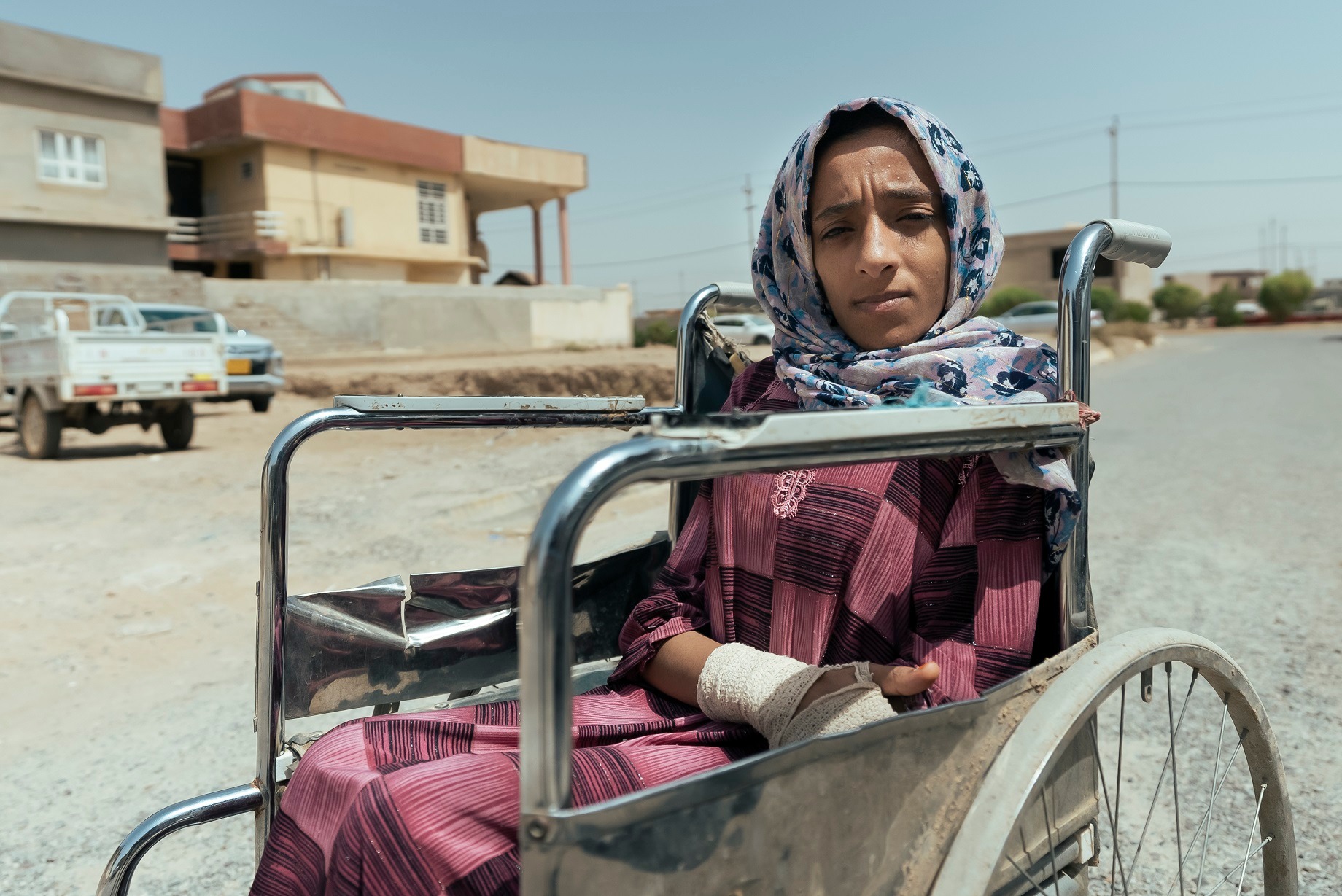
Literacy opened my eyes and, more importantly, my heart
“When we returned to Hawija, we immediately regretted the decision. It was all in ruins, it was scary. I kept telling my kids not to go outside of the house, but always staying at home eventually affected us psychologically,” said Hanan, mother of six.
Her youngest child goes to school, the others dropped out.
“Always being at home with nothing to do and with a source of income that’s barely enough to support the family in this war-torn town was very difficult for us. I had to constantly keep an eye on the kids and raise their spirits to help them cope and this was exhausting for me. “
She settled on the literacy course offered by the MHPSS team of IOM “because I found that to be the most important for me. I have learned the Arabic alphabet, and I can read and write now. This has been a life-changing experience.”
“Literacy helps with me with everything, when I go to a clinic for example, or go somewhere else, I can read signs. I didn’t know how to read a single word before. It opened my eyes and, more importantly, my heart.”
“I am very happy that there are different recreational activities provided here because people have different interests. I would love to also participate in the drawing activity after the literacy course. I have always loved to draw. I may be a senior but when I draw, it makes me feel young, like a little girl.”
In addition to strengthening positive coping mechanisms, such community-based support serves as a gateway to address psychosocial challenges and identify individuals in need of more specialized MHPSS support in a non-stigmatizing way.
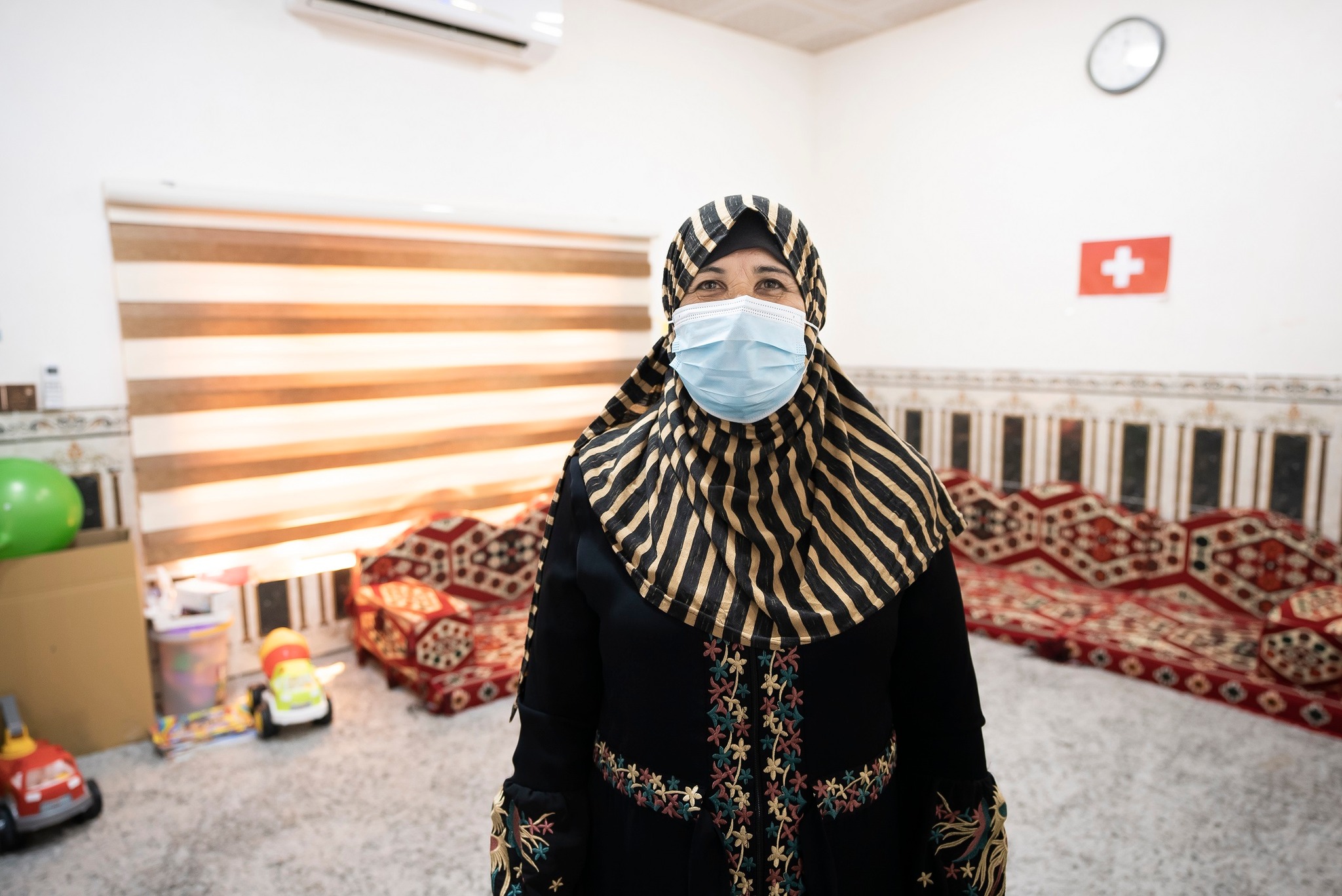
Hanan and her family also received legal support for civil documentation through the IOM centre. All of their IDs are in the process of being renewed by the legal team.
Civil documentation – a right in and of itself – is necessary for the exercise of other rights, including the rights to education, health, adequate housing, freedom of movement and due legal process. Having the appropriate ID helps to enable access to public services, school enrollment, shelter support and much more.
The local administration of Hawija and the United Nations are pushing hard to generate job opportunities for the youth especially in war-ravaged regions following the severe blow the Islamic State in Iraq and Syria ISIS caused to economy of the regions it has controlled in 2014 up to 2017.
The Directorate of Hawija Municipality has started to establish two projects in the district center to generate about 250 job opportunities: the first is to establish a model market to curb the phenomenon of street vendors, and the second is to build a complex for libraries and petition writers end the spread of random kiosks at the doors of government departments.
IOM was planning to build a small bazaar including 75 stores downtown of Hawija.
I learned how to cut and dye hair
“Keeping your sanity when you are stuck at home most of the time with no source of income and nothing to do is very hard,” says Jameela, a 34-year-old mother of five. Jameela’s family was displaced from Hawija in 2014, returning home after three years in displacement. The town was in ruins and remnants of war were strewn everywhere.
“The situation was not good, and people were psychologically exhausted. Because my husband is blind and has stones in both kidneys, he can’t work. We have no one to work and support the family – other people support us. The other day, we had nothing to eat for dinner. That’s how bad our financial situation is.”
Jameela heard about services offered at IOM Iraq’s centre in Hawija. She decided to join one of the community-based activities that integrates elements of simple vocational training.
“I took part in the salon activity. I learned how to cut and dye hair and how to do makeup. I feel good about this because it is useful and helps me to get out of the house and use my time for something beneficial,” she told IOM.
“I made new friends with other women. It helps us change the mood a bit. I am very happy with this centre and its activities, I chat, laugh and joke with other women, and this helps us forget about our psychological state a bit.”
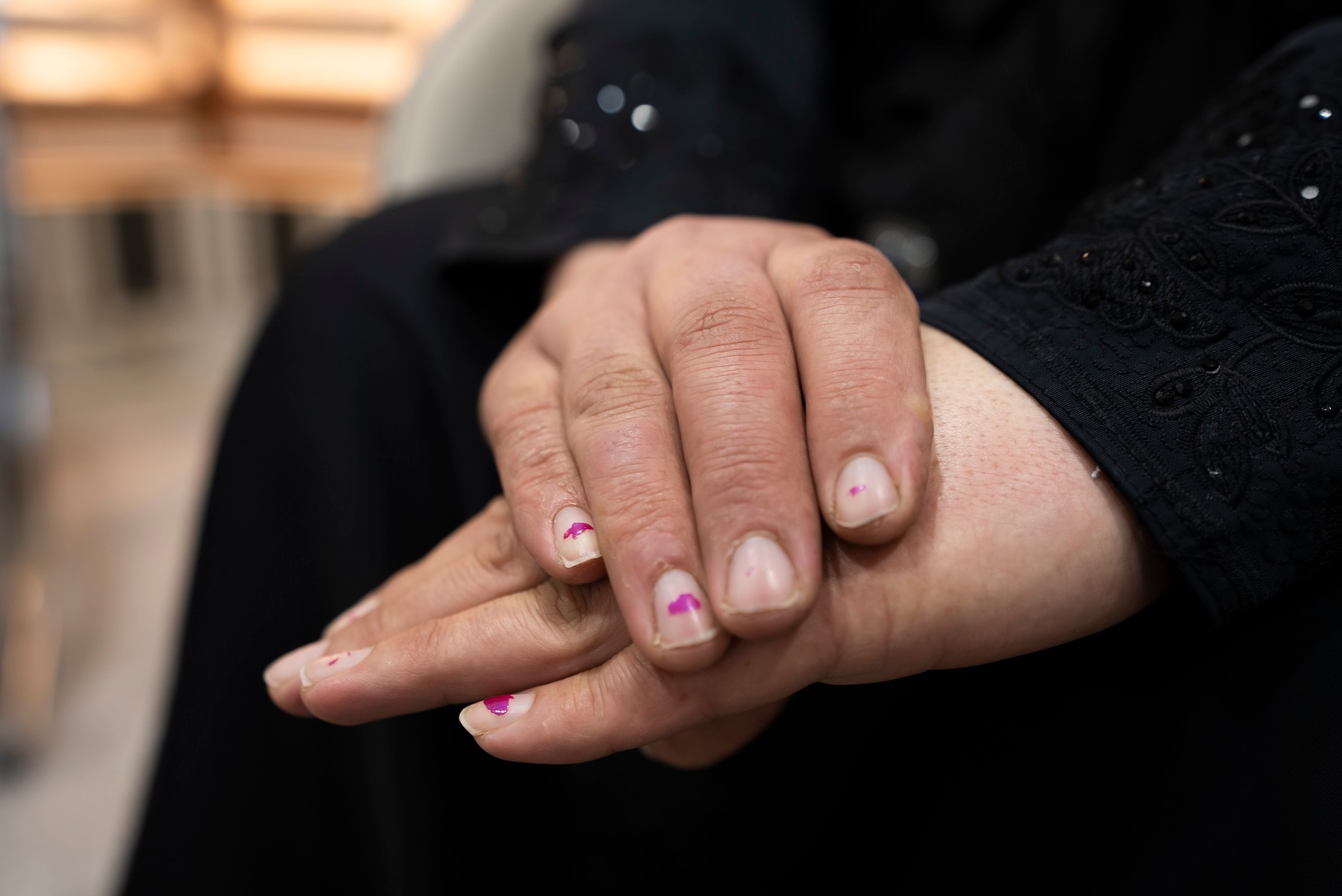
Jameela and the other participants also received psychosocial support sessions on stress management and self-care.
While at the centre, Jameela learned that IOM Iraq also provides legal support. Jameela’s family members all had old civil documentation that needed to be renewed, but because of their financial situation, they hadn’t been able to do so.
“Our IDs are very old, and eventually everyone needs to change to the new unified Iraqi ID currently in use, or you will face challenges with the old IDs. They took care of everything else. And soon, we will get our new IDs.”
*Names have been changed for privacy reasons.

